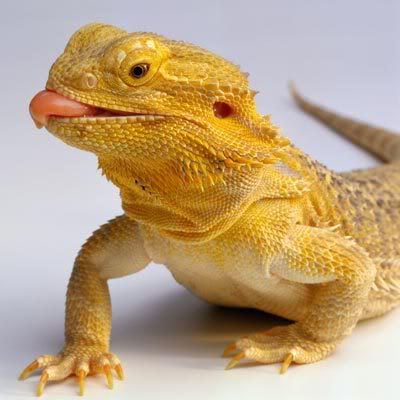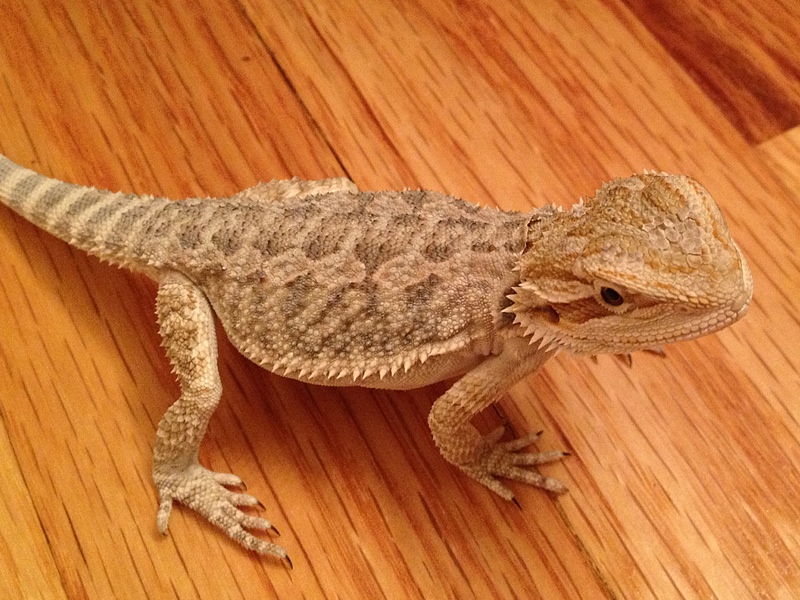Baby Bearded Dragon Facts: The Ultimate Guide for Beginners
Introduction
Bearded dragons are one of the most popular pet reptiles in the world, and for good reason. They are docile, easy to care for, and entertaining to watch. If you’ve ever considered getting a bearded dragon as a pet, then you might be interested in learning some baby bearded dragon facts. In this article, we’ll cover everything you need to know about baby bearded dragons, from their diet to their behavior.
What Are Baby Bearded Dragons?
Baby bearded dragons, also known as hatchlings, are baby reptiles that are born from eggs laid by adult bearded dragons. They are about 3-4 inches long and weigh around 4-6 grams when they hatch. Baby bearded dragons can grow up to 16-24 inches in length and can live for up to 12-15 years if properly cared for.

Baby Bearded Dragon Diet
Like adult bearded dragons, baby bearded dragons are omnivores and eat a variety of insects, vegetables, and fruits. However, their diet should consist mostly of insects, as they need a high amount of protein to support their growth. Here are some of the best foods to feed baby bearded dragons:
- Crickets
- Mealworms
- Dubia roaches
- Phoenix worms
- Collard greens
- Mustard greens
- Turnip greens
- Butternut squash
- Blueberries
- Mangoes
It’s important to dust the insects with calcium and vitamin D3 powder before feeding them to your baby bearded dragon to ensure they are getting all the nutrients they need. You should also make sure to remove any uneaten food after 15-20 minutes to avoid developing bacteria in the enclosure.

Baby Bearded Dragon Enclosure
When it comes to housing your baby bearded dragon, there are a few things to consider. Firstly, the enclosure should be big enough to provide ample space for the dragon to move around and explore. A 20-gallon long tank is a good starting size for a baby bearded dragon, but as they grow, you’ll need to upgrade to a larger enclosure.
The enclosure should also be equipped with the right type of lighting and heating sources. Baby bearded dragons require a basking spot with a temperature of 105-110°F and a cooler area with a temperature of 80-85°F. They also need access to UVB lighting to help them synthesize vitamin D3 and absorb calcium. The lighting and heating sources should be on for 10-12 hours a day and turned off at night.

Baby Bearded Dragon Behavior
Baby bearded dragons can be very active, curious, and playful. They are diurnal, which means that they are most active during the day and sleep at night. You’ll notice that your baby bearded dragon will spend a lot of time basking under the heat lamp, but they’ll also enjoy climbing, digging, and exploring their enclosure.
One thing to keep in mind is that baby bearded dragons might be skittish or nervous at first, especially if they’re not used to human interaction. It’s important to handle them gently and regularly to help them get accustomed to being handled. You can start by holding them for short periods of time a few times a day and gradually increasing the duration as they get more comfortable.

Common Health Problems in Baby Bearded Dragons
While baby bearded dragons are generally healthy pets, they are susceptible to some health problems if they’re not properly cared for. Here are some of the most common health problems in baby bearded dragons:
- Metabolic bone disease
- Impaction
- Respiratory infections
- Parasites
- Mouth rot
These health problems can be prevented by ensuring that your baby bearded dragon has the right diet, lighting, and heating, as well as keeping their enclosure clean and hygienic. If you notice any signs of illness in your baby bearded dragon, such as lethargy, loss of appetite, or difficulty breathing, you should take them to a veterinarian who specializes in reptiles.
Conclusion
Baby bearded dragons make great pets for beginners and experienced reptile owners alike. By understanding their diet, behavior, and health needs, you can provide your baby bearded dragon with the best possible care and watch them grow into a happy and healthy adult. Just remember to give them plenty of love, attention, and environmental enrichment to keep them stimulated and happy.

